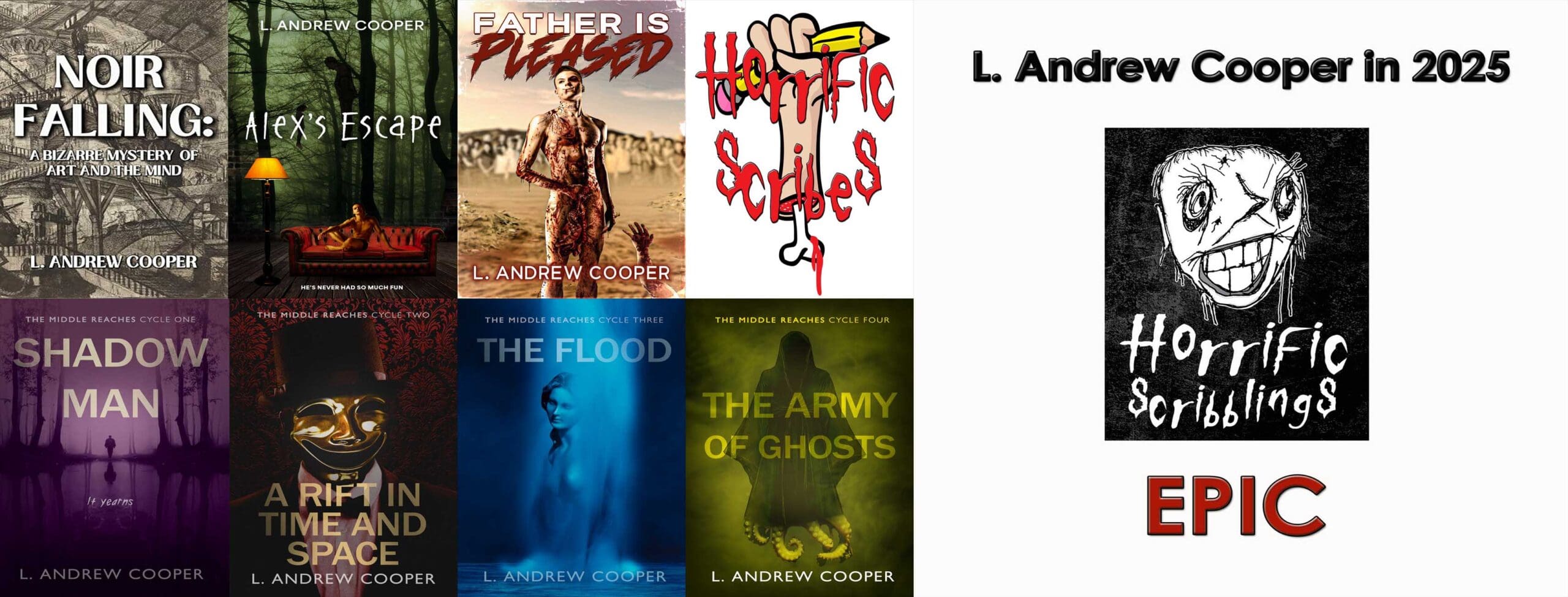So I was planning to write about why Mass Effect 3 supports my current feelings of optimism about young adults’ future of political engagement. That will have to wait, though, because I’m currently distraught by the news that the best horror TV show to hit the airwaves in a long time, 666 Park Avenue, is being cancelled.

Of course, when my partner and I were hooked after a couple of episodes, we knew that, according to the curse that hounds so many of us, it would be cancelled on account of being good. I’m still bitter about Wonderfalls. But I will not expand upon this curse here; no, my task here is something different. It is to explain why I, generally a champion of all horrors extreme, am infatuated with a show that blatantly prefers the simmer to the splatter.
I think in lists, people:
6. It’s a horror show for grown-ups. Granted, the boys on Supernatural are all grown up now that they’ve been on the air for many years, but for the most part, television’s supernatural offerings seem mainly geared toward the fantasies of teenagers, particularly teenagers who feel like outsiders and therefore imagine that being an immortal bloodsucker would give them an eternal inside. Hey, I had my Anne Rice phase, and I get it. 666 Park Avenue has a little bit of youthful angst, but its master metaphor isn’t “growing up and fitting in” like every horror show since Buffy. This show’s central conceit is that the powers in charge of a city like New York reach so high that they can’t help shaking the heavens and sink so low that they can’t stop borrowing from hell. And for anyone living in a globalized, postindustrial, capitalist world, that’s as tough as the grown up stuff gets without having bombs go off every few seconds, something I have trouble taking seriously.
5. Murmurations. This word is the title of the show’s second episode. It was familiar–my tentative definition was in the ballpark of right–but it still sent me to an online dictionary. A show on ABC reinforcing an English PhD’s vocabulary? Looooooooovely. More important, the images of the murmurations themselves were visual poetry, an even rarer find on network TV.
4. Vanessa Williams. Still beautiful, now bold, nay, badass, sculpting a character whose love of shopping no more trivializes her than her commanding strength masculinizes her. She exudes grace; she’s problematically dependent on her husband, yes, but he seems to be close friends with very dark forces (he owns the building in the show’s title), so her subservience isn’t necessarily the result of a traditional gender balance. And she still rebels, oh yes–his will is hers only when it suits her.
3. Cute young people whose names I might know later. Seems like they can act, too.

2. Terry O’ Quinn has more charisma that ten regular leading men combined.

He has a modest reputation for his by-all-rights-legendary performance in the original The Stepfather (1987), but of course he is best known for playing John Locke in Lost, my favorite character on that show. He’s better here, though, because with Lost I always felt weird for finding his philosophical angst so sexy… here, he gets to be engaged with the Beyond while actively making his screen partners… at least those drawn to powerful men… drool.
1. I don’t know where it’s going. I had Lost figured out in a couple of episodes, and though the creators tried to frame the ending as something else, they still basically gave me what I was expecting. Given my acquaintance with centuries of the horror genre, I know a premise involving a Mephistophelian billionaire in New York running a spiderweb/soultrap of a highrise–the Gothicly-named Drake–could be following and/or remixing any number of well-established narrative patterns. And yes, the simultaneous existence of multiple timelines within the building’s walls recalls high points of the genre, especially Kubrick’s The Shining (1980), which has lush, saturated interiors akin to what we see in the Drake. And the show’s critique of class excesses would fit in any New York soap opera, not to mention the aesthetic from Resnais’s Last Year at Marienbad (1961) that clearly inspired Kubrick. But while I recognize all these facets, finding them individually as predictable as most things on television, I am still mystified by the show’s particular melange, axe murders and shut-ins who morph into birds and homicidal lunatics named after famous painters and bad guys who may have once been compromised in the ways they now seek to compromise others… did I mention severed heads in boxes? That was a brisk moment, but for the most part, all these elements circle around one another like ladies at an Austenian ball–the spectacle is not sensational, like most of the horror I like, but subtle, layered, and so full of ambiguity that the mystery could productively sprawl for several more seasons.
But it won’t, because it’s being cancelled. Unless someone with power happens to read this praise, this plea, this encomium for television horror as art. Let the Drake stay open. Let the evil simmer awhile longer. Eventually, enough fans would learn to feast.

Comments are closed.